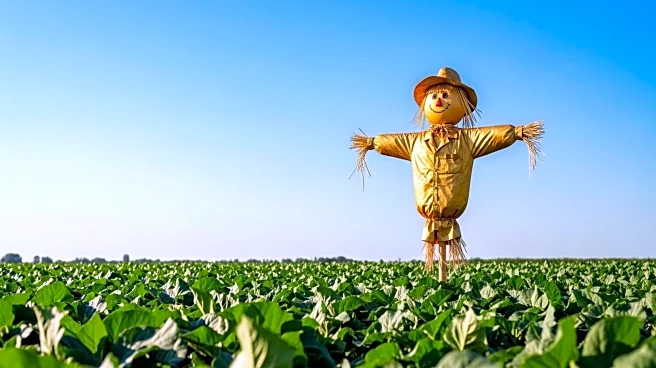What is the story about?
What's Happening?
The Department of Agriculture (DA) in the Philippines has raised concerns over the country's import-heavy agricultural trade, which has negatively impacted local farmers. During a budget hearing, DA Undersecretary Asis Perez highlighted the imbalance in agricultural trade, with imports significantly outweighing exports over the past decade. The DA is advocating for interventions to increase local productivity and reduce dependency on imports. The agency is pushing for restrictions on rice imports, citing the adverse effects on local palay prices and farmer incomes. The DA's proposed budget for 2026 includes funding for programs aimed at supporting local agriculture.
Why It's Important?
The import-heavy agricultural trade has contributed to poverty among farmers and fisherfolk, who earn below the national average. The DA's call for import restrictions is crucial to protect local agriculture and ensure food security. The imbalance in trade affects the livelihoods of millions employed in the sector, highlighting the need for policy changes to support local production. The government's approach to managing imports and tariffs will have significant implications for the agricultural economy and rural development.
What's Next?
The DA is expected to continue advocating for import restrictions and policy interventions to support local farmers. Discussions on restoring rice tariffs and implementing qualitative and quantitative restrictions on imports are ongoing. The government may explore amendments to the Rice Tariffication Law to better regulate imports. The DA's budget allocation will focus on infrastructure improvements and programs to enhance agricultural productivity, aiming to reduce the trade deficit and support local farmers.















